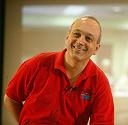Be An Engineer
I was recently in Blacksburg for a Civil and Environmental Engineering Alumni Board meeting and had the privilege to attend Virginia Tech’s induction of engineering students into Chi Epsilon. Engineering graduates know that Chi Epsilon is the National Civil Engineering Honor Society. I’m particularly fond of their stated purpose: “…Maintaining and promoting the status of civil engineering as an ideal profession.”
An ideal profession. There’s a lot packed into those words. And there are some aspects that we tend to forget as well. Seeing these kids being inducted reminded me of a few things I believe are worth sharing.
We’re all familiar with the traditional definition of engineers and engineering. We gravitate pretty quickly to the mathematics, science and technology aspects of what it means to engineer. But I’ve always been intrigued by lesser known and seldom used definitions.
Think about these statements a bit:
Engineer: A skillful contriver or originator of something.
Engineering: The action of working artfully to bring something about.
Those words “contriver,” “originator,” “artfully,” and “something” create an abundance of energy and excitement in me. Why? Because they demonstrate that engineering and engineers are about more than math. More than science. Engineering does not end with a set of plans. Engineers are not just problem solvers. Don’t get me wrong. There’s nothing wrong with being a great problem solver. But engineers should be encouraged to wrap themselves in a broader – and brighter – cloak.
Engineers dream.
Engineers create.
Engineers are artful.
And engineers get something done. Or they should. Otherwise, engineers stops short of their full potential. And that’s a shame.
I can’t help but wonder at times whether the industry has stopped short. I hear some firms espouse that the best job is “…one that never gets built.” Do you ever hear that in your firm? I understand and appreciate the context of the remark. In our ever growing litigious society, leaving a project on the drawing table is certainly a safer business proposition. Design. Get paid. Avoid liability. And walk away.
Do you draw a line between engineers who design and engineers who build? If you do, then you’re not engineering. And people who work in such an environment aren’t being developed as engineers. Oh, they will get the experience they need to sit for the PE exam, and most will pass. But those same folks may never look around the corner to see where true “engineering” could take them. They may never know the full measure of what it means to be an engineer.
In the late 1950’s, our industry was called on to create and fulfill a vision. Gosh darn it, did folks ever respond to that challenge with a mighty burst of energy, creativity and a “get something done” attitude. I wonder if that spark has gone out a bit? I’m not suggesting it has in every corner. I just wonder about it.
Listen, sometimes you can see something more clearly from afar. I hold engineers and engineering in the highest regard as people and as an industry. But when I think of “engineers” I think of designers and contractors in one group. People who are committed to the end game.
People who originate.
People who contrive — in a positive sense.
People who are artful.
People who bring something about.
If your eyes are not on the end game; well then, your eyes are not on the ball. And you’re missing out on a hell of a lot.
Be an engineer.
———

About the author, Philip Shucet: Since 1972 Philip has enjoyed the excitement of working in the transportation engineering and contracting business. His work has taken him across the country as well as across both the Atlantic and Pacific Oceans. Especially meaningful to Philip was the time he spent as the Commissioner of the Virginia Department of Transportation from 2002 through 2005. During his time at VDOT, Philip made a concerted effort to reinvigorate the value of “being an engineer” in that organization. In December 2008, Philip set out on a new journey by creating his own company, The Philip A. Shucet Company, where he is focused on providing strategic advice to private companies interested in pursuing — and building — transportation projects. Interestingly, he graduated from Virginia Polytechnic Institute and State University in 1972 with a degree in History.


I read somewhere that scientists study what is, while engineers create what never was.
I was watching a certain video and I came across this pretty interesting description which I will share with you:
Engineering is simply applied science. Good engineering is artfully applied science.
Others ponder a point. Engineers connect the dots.
My career as an airport engineer has been fun, like playing in a huge sandbox with larger-than-life toy trucks.